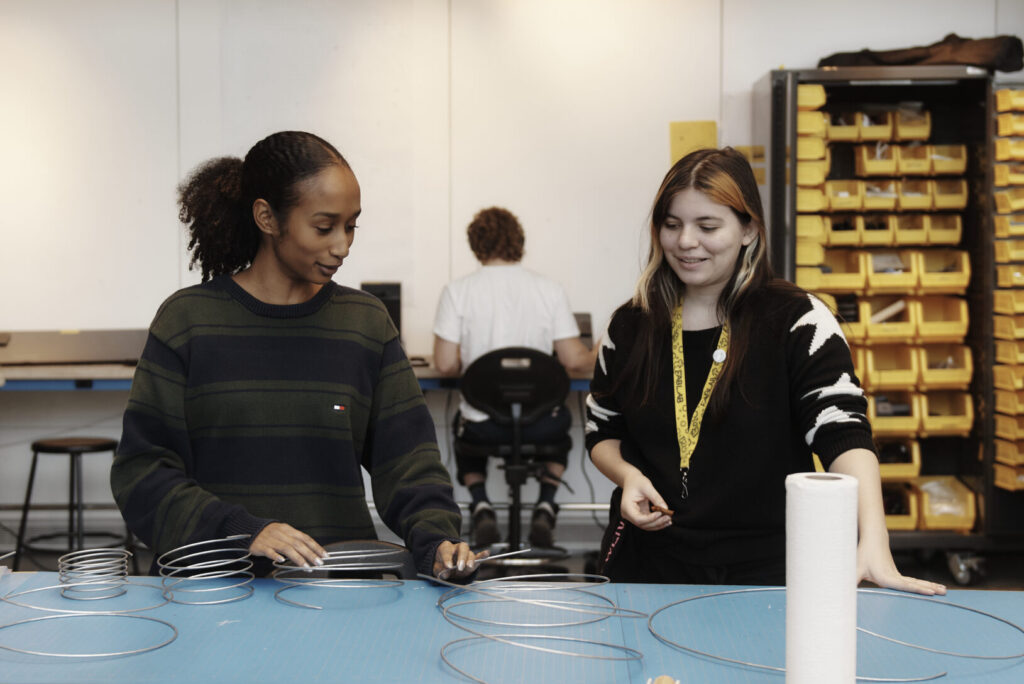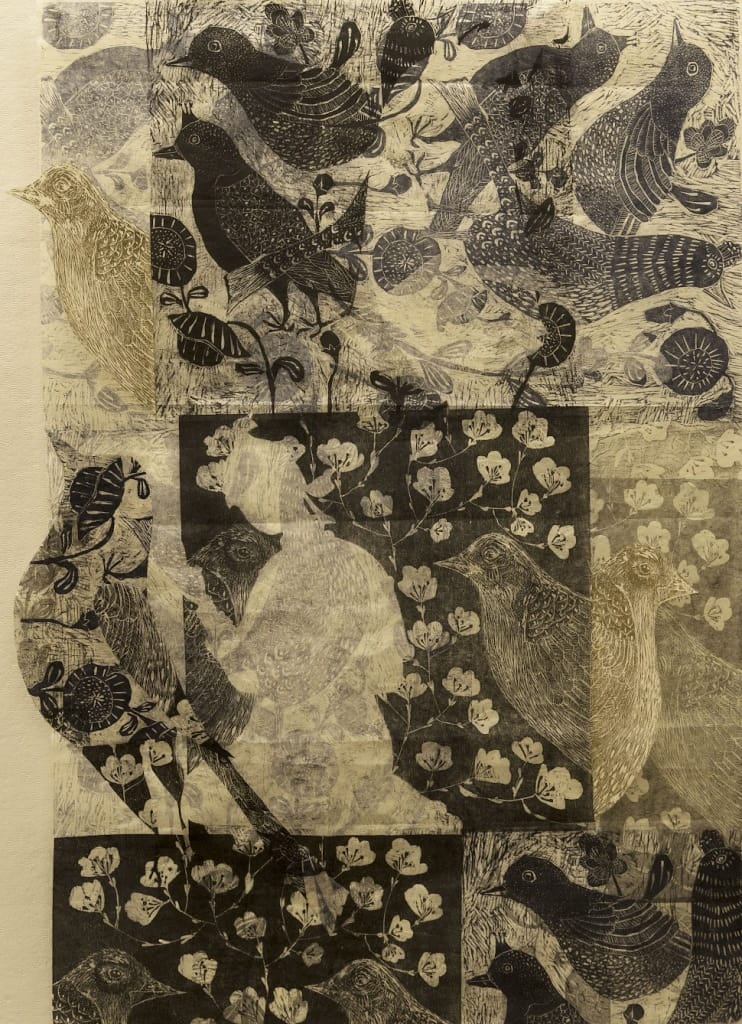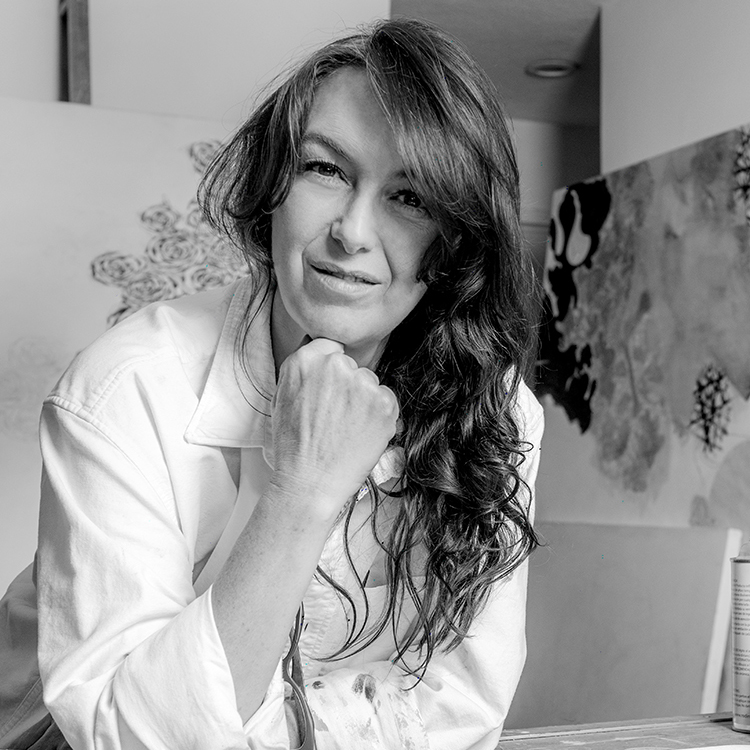The foundation of our MFA Studio Arts program is an individualized education that helps each student develop artistic vision and voice.
Our full-time, two-year (60-credit) MFA Studio Arts program encourages students to experiment and explore, while refining the technical and conceptual strategies in their work. Students may choose one of three concentrations, in the areas of Painting, Printmaking, or Sculpture.
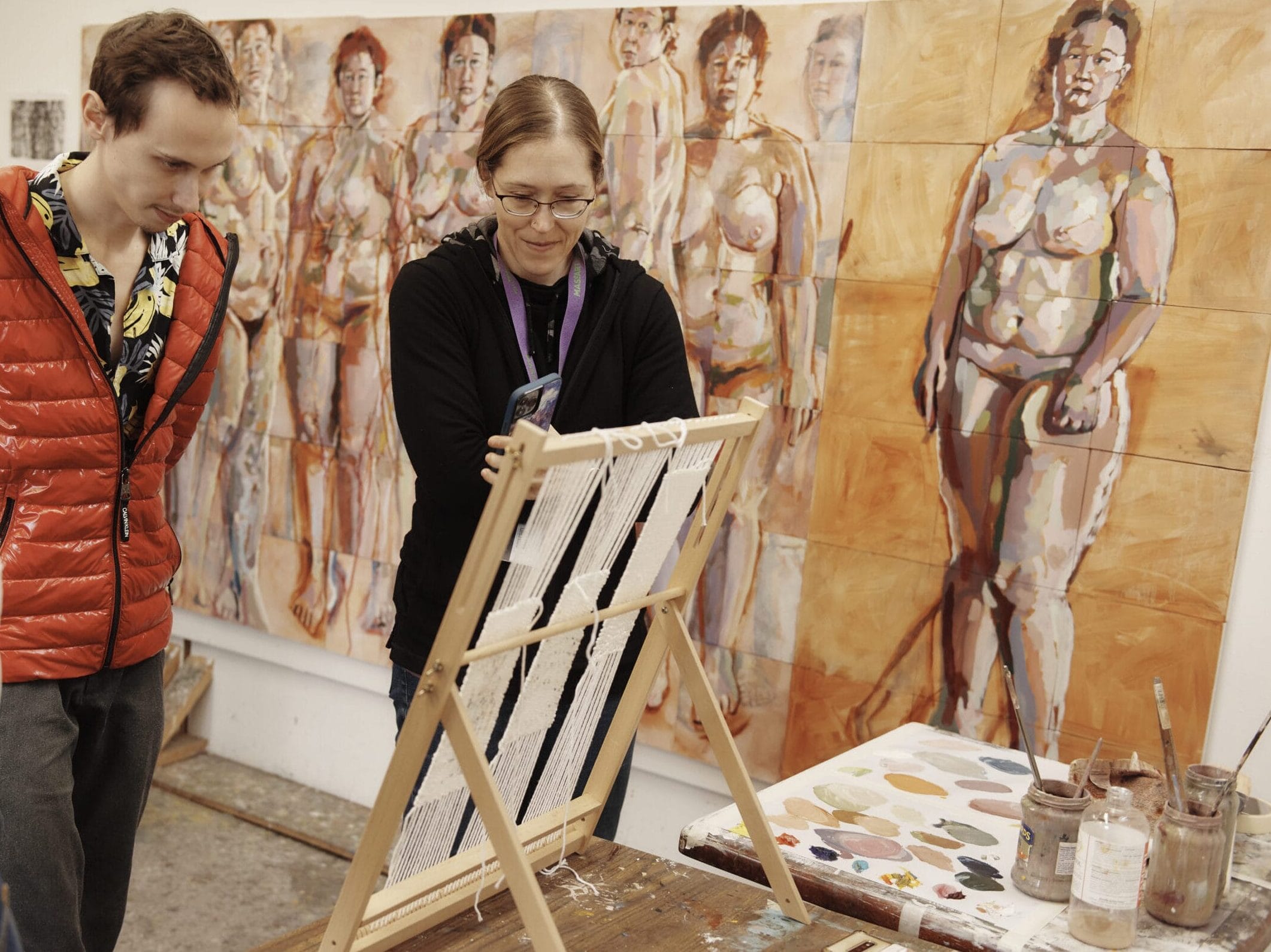
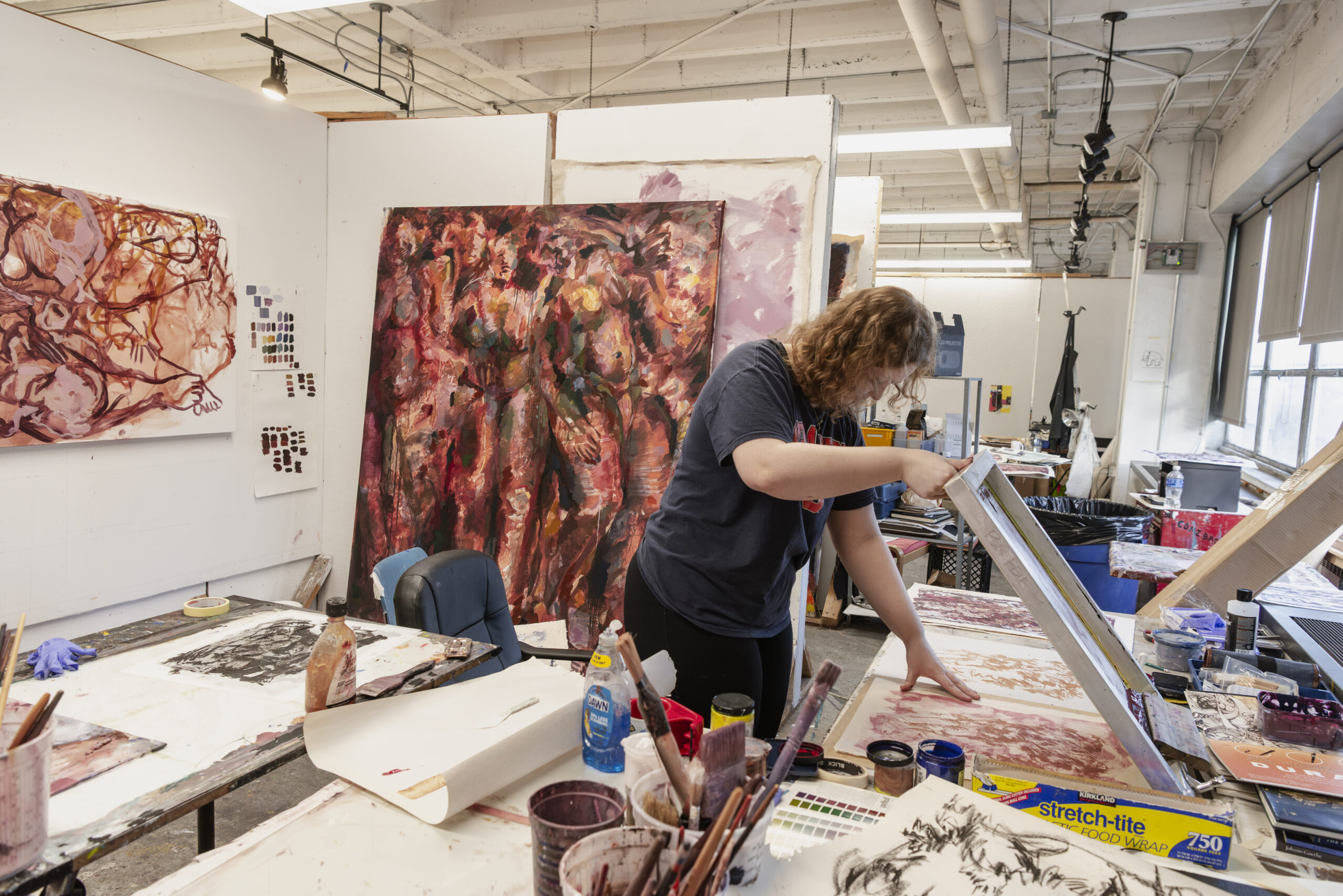

Students are encouraged and challenged, and through rigorous study, creative exploration, and critical discourse, each artist’s body of work deepens and evolves, along with the student’s ability to place their work in the context of contemporary practice.
Dialogue and critique are key components of an education in the studio arts, and at MassArt critique is viewed as a creative act. The rich dialogue among students, faculty, visiting artists, and critics takes place within the framework of core classes, electives, presentations, and excursions off campus. Our approach illuminates new pathways for each artist’s work, helping students to build a sustainable practice, and to develop perspective and empathy as artist citizens of the world.
Students are encouraged and challenged, and through rigorous study, creative exploration, and critical discourse, each artist’s body of work deepens and evolves, along with the student’s ability to place their work in the context of contemporary practice.
In our MFA Studio Arts program Sculpture concentration, you’ll explore sculptural mediums using our exceptional facilities in glass, clay, wood, and metal, and more.
MassArt’s full-time, two-year (60 credit) MFA Studio Arts program is committed to an expanded understanding of the sculptural medium.
With the support of faculty working across a range of media and disciplines, students engage in rigorous experimentation and collaboration, and the resulting work–from clay vessels to collaborative performance–reflects a highly personal investigation. Students with an expanded sense of practice are also encouraged to explore technology, performance, and the moving image as possible vehicles for their ideas.
Dialogue and critique are key components of an education in the studio arts, and at MassArt critique is viewed as a creative act. The rich dialogue among students, faculty, visiting artists, and critics takes place within the framework of core classes, electives, presentations, and excursions off campus. Our approach illuminates new pathways for each artist’s work, helping students to build a sustainable practice, and to develop perspective and empathy as artist citizens of the world.
MFA Learning Outcomes
Students who complete the Studio Arts MFA program are expected to be able to demonstrate the following learning outcomes.
- Create a 21st century studio practice based on personal vision to develop a body of work that is unique and reflects an authentic perspective
- Demonstrate technical and formal proficiency in chosen media, alongside openness to investigations in other disciplines
- Locate one’s work within contemporary art, art history, and larger cultural contexts
- Strengthen visual analysis and verbal articulation skills as a foundation for critical dialogue and conceptual frameworks.
- Develop awareness of the diverse cultural, historical, and experiential dimensions in one’s own artwork and in that of others, as tied to geography, time, and larger ideologies
- Demonstrate best practices in the studio, including well-being and safe use of tools, equipment, and materials
- Acquire professional skills for sustainable studio practices beyond the educational context, including the ability to present, write about, and discuss your work.
Faculty
Catarina Coelho
Visiting Lecturer, Fine Arts 2D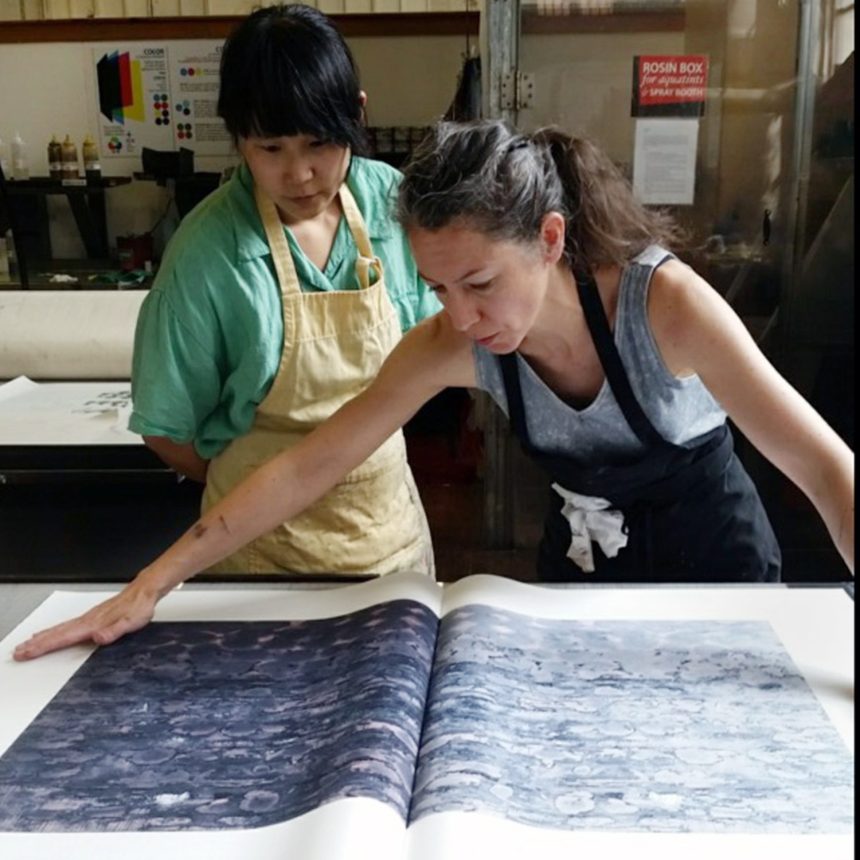
Elizabeth Mooney
Associate Professor, Painting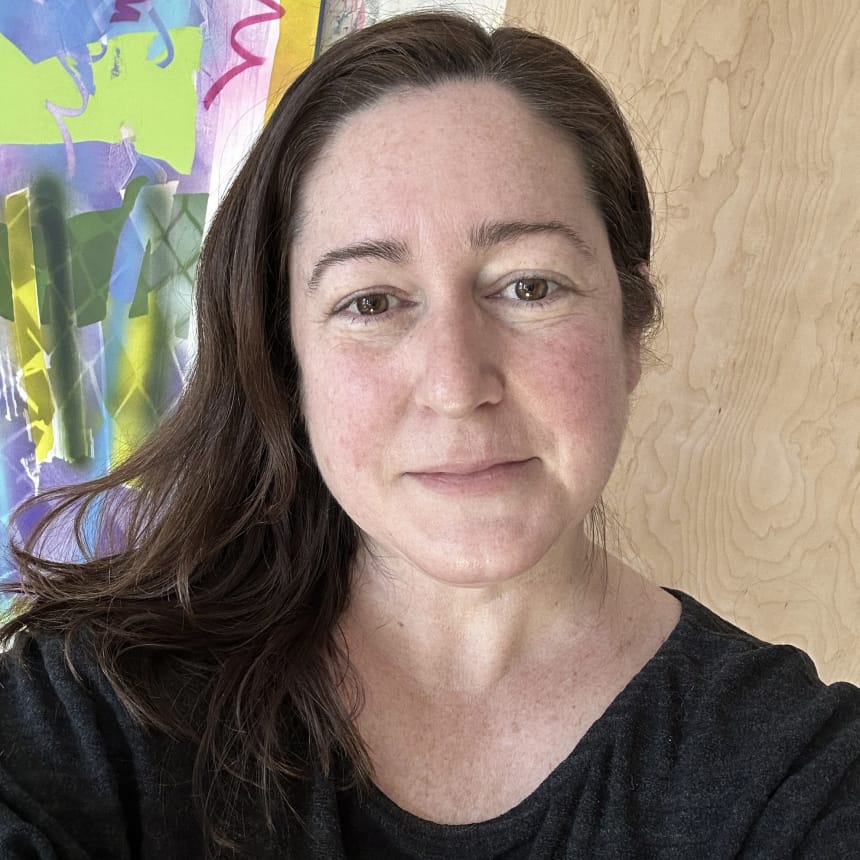
Anjali Srinivasan
Associate Professor, Glass
- First Time Undergraduates
- Transfer Students
- Re-admission Candidates
- International Students
- Graduate Students
- Certificate Students
- Resources for Veterans
- Admissions Policies
- Meet the Admissions Team
- Admissions Events
- Resources for Teachers & Counselors
- Accepted Students
- Schedule Your Visit
- Request Information




